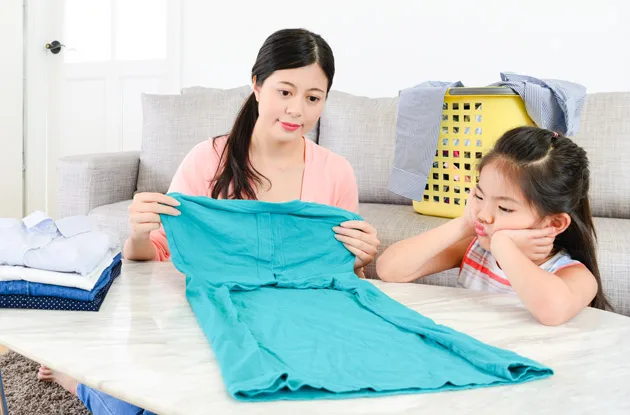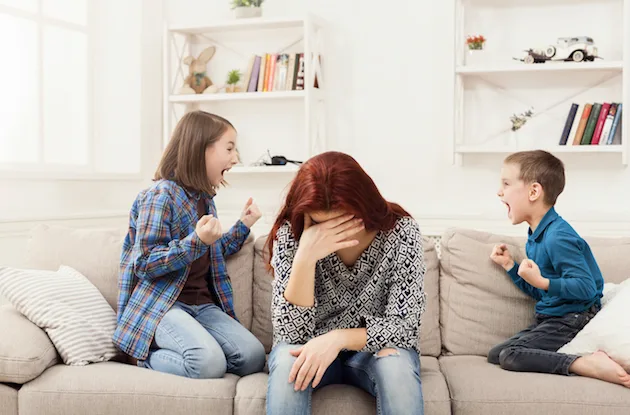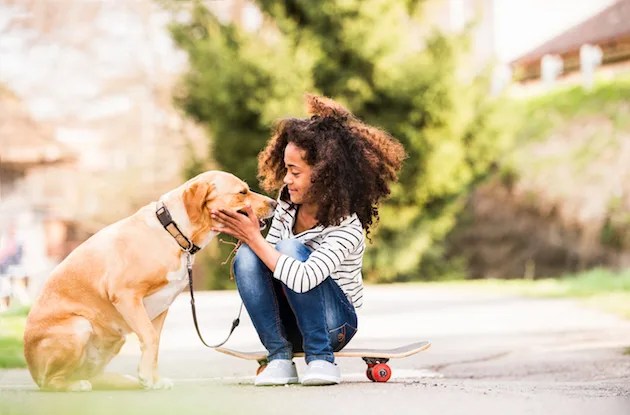 “If only I could bubble-wrap my child!” It’s a nice thought, especially for parents of toddlers who bump and run all day long, or for those with older daredevils on their hands. And how about our shy guys and girls, the ones we as parents just want to wrap up in protective hugs, to reassure often? Deep down we all know that the only way our kids will grow into their own is by exploring the world, but that doesn’t mean doing so is always easy. How – and when, and how much – should we let go?
“If only I could bubble-wrap my child!” It’s a nice thought, especially for parents of toddlers who bump and run all day long, or for those with older daredevils on their hands. And how about our shy guys and girls, the ones we as parents just want to wrap up in protective hugs, to reassure often? Deep down we all know that the only way our kids will grow into their own is by exploring the world, but that doesn’t mean doing so is always easy. How – and when, and how much – should we let go?
“If you are brave enough to know your children for who they are as individuals, then you’ll know what situations you can trust them with and which situations you should be a little more careful entrusting them with,” advises Sue Lee, principal of CCB School of Douglaston in Queens. “Letting your loved ones go is probably one of the hardest things in the world to accomplish,” she adds.
To help you along the way, we asked local experts:
How can I avoid being overprotective of my child?
“There is no simple rule regarding what is ‘overprotective.’ There are always nuances and particulars. As parents, we can’t keep our children away from every negative outcome. The better question to ask is, ‘Does my child have the skills and resilience to bounce back from the potential failure or dangers?’ That is, can he or she cope, face the challenge? The second part to my advice would be to use your network of fellow parents. The folks your child has playdates with know your child, know what they would allow their own child to do, and know you and your tolerance for worry. Work that network of people who understand the nuances of these sometimes difficult decisions.”
-Jonathan Shevin , director, Early Childcare Center, Central Queens YM&YWHA, Forest Hills
“The first thing to realize is that most parents usually are overprotective of their children-so if you’re one of them, you are not alone. The next key step would be to know your children, be it good or bad, but to really know them for who they are and not who you want them to be. If you are brave enough to know them for who they are, then you know what situations you can trust them with and which situations you should be a little more careful entrusting them with.
Once a parent realizes that holding on to their beloved children as their ‘princesses’ or their ‘kiddos’ is actually hurting them, then it should make the process a bit easier. For sure, it will take time and a lot of introspection.
And as the saying goes, the apple doesn’t fall far from the tree. It is in our nature to believe that our fears should be the fears of our children, as well. This, I believe, is somewhat true. However, if we instill within them these fears, such as being fearful of a dog because it is a fear of mine, then you are enabling your fears on them, negatively shaping them without giving them a chance.”
-Sue Lee, principal, CCB School of Douglaston
“If you are too involved in your child’s day-to-day life, then you are overprotective. Give your kids the chance to express themselves.”
-Howie Arons, director, NY Tennis Academy at Cunningham Sports Center, Fresh Meadows
“You might be overprotective of your child if you do not involve them in decision-making processes, or if you do not allow them to fail. Allowing children (based on their age) to confront the consequences of their choices will enable them to make informed decisions and allow you as a parent to stay involved in your child’s life.”
-Steve Pullano, director, Teen Outreach “Hot Spots” Program, Queens Community House, Forest Hills
“It is natural for us to protect our children, and in doing so we are reluctant to let them go out on their own and make their own decisions. It is important to talk to your children all the time. Instill good values and teach them how to make choices from an early age. Sometimes their choices will not be the right ones. At that time they need to feel the consequence of their choice in order for them to learn from it. Life is full of lessons, and in order to grow into responsible adults, children need to understand that the choices they make affect them. Communication is the key to teaching all of life’s valuable lessons to our children.”
-Michele Gembressi, director, Pee Wee Folks Preschool, Whitestone
“My son, Brandon, is 7 years old. Before he goes into a new experience such as summer camp, a school trip, or a visit to a friend’s house, I talk to him about the situation and inform him as much as possible about what to expect. I then stand back and see how he handles himself on his own. I allow him to take some risk and/or go into a new situation on his own so he can begin to develop his own instincts of right and wrong based on information that I have provided him.”
-Maria L. Borrero, owner, My Gym Fresh Meadows
Also see: More advice from New York metro area experts for overprotective parents
Our Ask the Experts section, for even more practical parenting advice





















